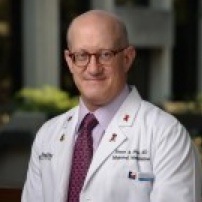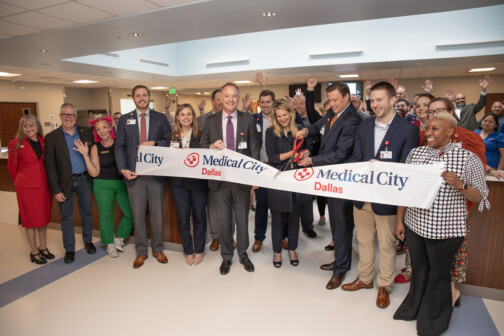UT Southwestern Medical Center has signed a letter of intent to operate a 100,000-square-foot proton therapy center to treat cancer near its Medical District campus in Dallas.
The $225 million center is being built and funded by San Diego-based Advanced Particle Therapy (APT). The company hopes to break ground on a 4.5-acre site in early 2013. The three-story building, which will have five treatment rooms, will take about three years to build and equip.
The company has built centers and has similar agreements in San Diego with Scripps Health and Scripps Medical Group; in Baltimore with the University of Maryland School of Medicine, and in Atlanta with Emory University Healthcare. The facility will have four treatment vaults and laboratory space for researchers.

“This is an exciting development in our ability to offer patients in the region access to the best possible treatment options and provide a leadership role in how best to study and apply this technology,” said Bruce Meyer, M.D., executive vice president for health system affairs.
UT Southwestern’s participation in the project is subject to the approval of the UT System Board of Regents.
The proton center would be the second in Texas. M.D. Anderson Cancer Center’s facility in Houston is one of nine U.S. centers. There is also a facility in Oklahoma City. Eight more are under development, according to the National Association for Proton Therapy. The centers are funded by investors, and the universities do not share the profits.
Jeff Bordok, APT president and chief executive officer, said his company had been talking with UT Southwestern about the center for about six years, before inking what he termed “a long-term management contract.”
Bordok said APT conducted extensive market research and determined there was a “substantial need” for a center in Dallas. He cited the city’s central U.S. location, Dallas/Fort Worth International Airport, an ample supply of hotels near the center’s site, and UT Southwestern’s reputation. Its Simmons Cancer Center offers 13 cancer-care programs, and is the only North Texas medical center with a National Cancer Institute designation for innovative research and patient care.
The device, which has a weight equivalent to a loaded 737 jet, delivers radiation in a manner that proponents say has fewer side effects and less collateral damage to healthy tissue than radiation or surgery in certain patients.
The therapy is considered ideal for tumors in vulnerable parts of the body, such as eyes, the brain, the neck and spine. Children are especially vulnerable to radiation’s side effects.
Hak Choy, M.D., chairman of the medical school’s radiation oncology department, said in a statement, “The precision of the proton beam allows for unprecedented focus and intensity in especially hard-to-reach places that tend to characterize head and neck cancers—and in pediatric cancers, where access can be anatomically tighter.”
However, the therapy has been expanded to more common cancers, such as prostate and breast cancer. The treatment has been controversial because of its expense. According to a study in the Journal of Clinical Oncology, proton beam therapy for the average 60-year-old man would cost $63,511, compared with $36,808 for traditional radiation treatment. No study has yet shown proton beam therapy to be superior to radiation for treating prostate cancer.
Bordok said the dearth of proton beam centers and the fact that patients want proton therapy—rather than participation in randomized-controlled trials—contribute to the lack of research. He said APT’s current centers are collaborating on developing treatment protocols and conducting research on the therapy.
An Archives of Internal Medicine study this spring found that prostate cancer patients are more likely to receive proton beam therapy if they lived near a facility. Most Medicare regional contractors and major insurance carriers currently pay for proton beam therapy treatment.
Steve Jacob is editor of D Healthcare Daily and author of the new book Health Care in 2020: Where Uncertain Reform, Bad Habits, Too Few Doctors and Skyrocketing Costs Are Taking Us. He can be reached at [email protected].





